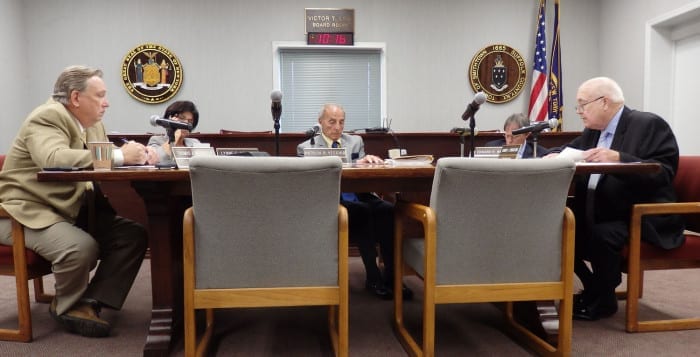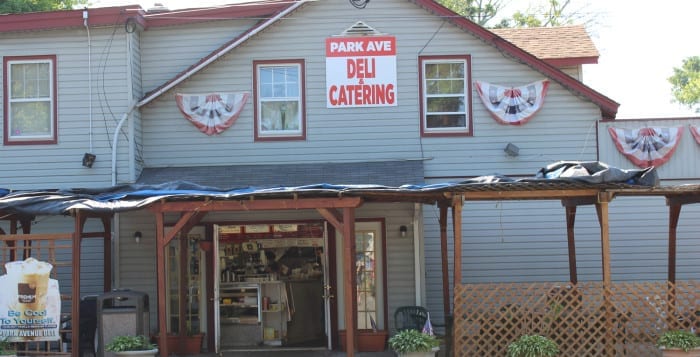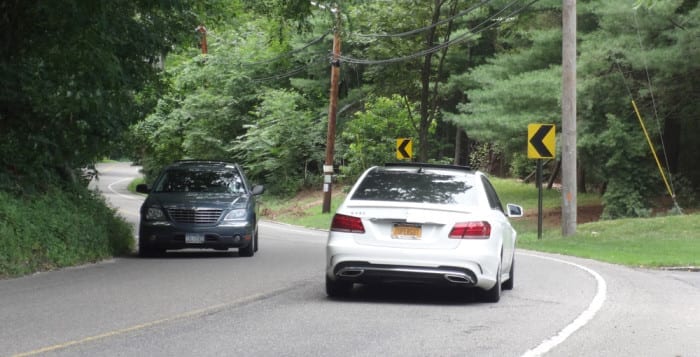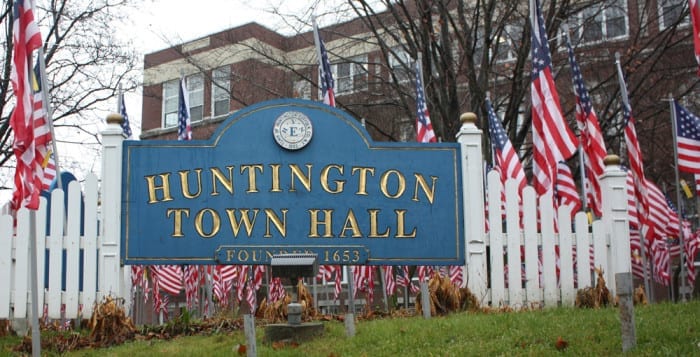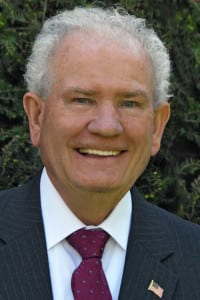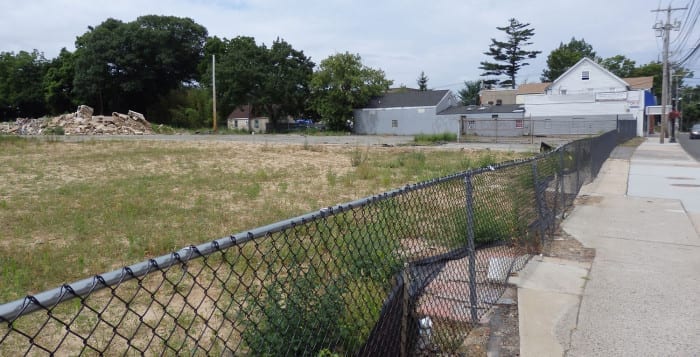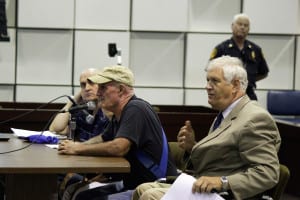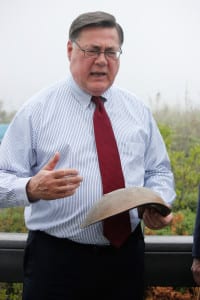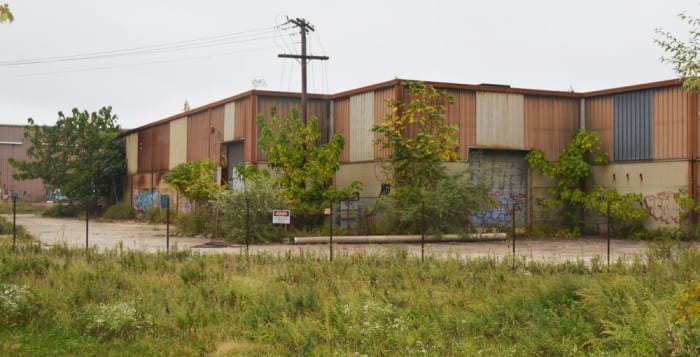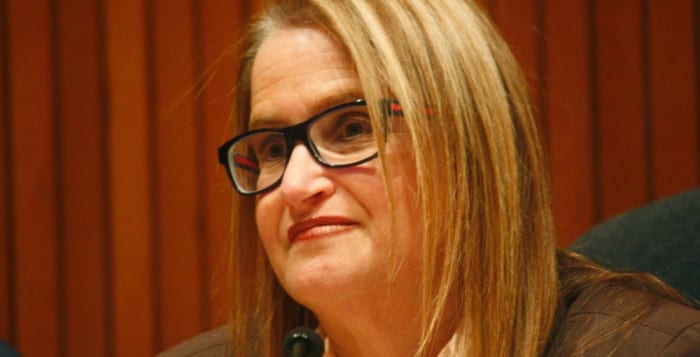The Huntington Town Board will consider changing the zoning on its own motion of a Huntington Station property next month to make way for a veterans affordable housing project.
The proposal, which would be built on a quarter-acre vacant lot on the corner of Depot Road and East 9th Street, entails creating four, one-bedroom affordable units in a two-story building with a lobby, according to property owner Fred DeSanti. The town board is considering changing the zoning from C-6 Huntington Station Overlay District to C-1 Office Residence District to accommodate the project.
DeSanti said in thinking up ways to develop the property that he and his brother-in-law Douglas Quimby own both became interested in helping veterans while also doing their part to revitalize Huntington Station.
“We just thought this was a way we could do something good for the community [and] we could provide much needed housing for the veterans,” he said.
The town and the community, he said, received the project warmly. Joan Cergol, the executive director of the town’s Economic Development Corporation, said DeSanti approached her with the idea in part to contribute to the area’s face-lift while also giving veterans an affordable place to live. She said the town is supportive of the project.
DeSanti’s project isn’t the only veterans housing project slated for the area. VetsBuild is in the process of building the country’s first ever Department of Energy zero-energy home built by vets and for vets on Depot Road near East 5th Street, a project that is in final reviews at Huntington Town. Also, the town is working on pushing forward Columbia Terrace, a 14-unit affordable housing condo complex for veterans to be located at Railroad Street and Lowndes Avenue.
“There seems to be an organic appearance of veteran-based housing in Huntington Station, which is a welcome type of a development as we are pursing new development in the downtown area,” Cergol said.
Once it is completed, the VetsBuild project — a green project — will create and generate as much energy as it uses, according to Rick Wertheim, the senior vice president of green initiatives and housing at United Way of Long Island. It will accommodate five veterans with special needs.
Asked why build in Huntington Station, Wertheim said they liked that the area’s slated for redevelopment. The town board has been working with master developer Renaissance Downtowns to redevelop the area.
Building in such an area “gives the folks who live there the opportunity to walk to a really dynamic living experience as opposed to being densely nested in a residential area where they’re kind of cut off from everything,” Wertheim said.
Cergol said she believes the word is getting out about change in Huntington Station.
“I think that there’s a general sense of optimism and enthusiasm to be a part of positive change in Huntington Station,” she said. “Whether you are a government, a private property owner or a nonprofit … everybody is looking through the same kind of prism now.”


